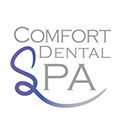Most people would agree that after not getting enough sleep, they feel tired, sluggish, and unable to think as quickly and as clearly as they normally can. The dangers of sleep deprivation have been thoroughly studied and documented. Not getting enough rest can have myriad adverse health effects. Now, sleep appears to serve another important purpose; improved memory retention. Farmington Hills dentist Dr. Aziza Askari discusses research that suggests sleep may aid and improve memory retention.
Memory in Your Sleep
A study conducted by researchers at Northwestern University gauged the benefit of sleep to the learning process by studying musicians. During the sleep-learning study, participants were taught to play two artificially generated musical tunes. As the musicians took a 90-minute nap, the researchers played one of the learned tunes, but not the other. The participants made fewer mistakes while hitting the keys to reproduce the tune that was played in their sleep. The researchers also noticed that electrophysiological signals recorded during sleep correlated with the extent to which memory was improved. These signals may measure the brain events that are responsible for improved memory during sleep.
Can’t Teach a Sleeping Dog New Tricks…Yet
Before you begin devising ways to sleep through work or school with the excuse that you’re improving your memory, the researchers clarify that the study focused on things already learned by the time sleep was initiated. Contrary to taking on new information in your sleep, the study focuses on enhancing existing memories by recalling information recently learned in your waking hours. For instance, if you were attempting to learn a new language during the day, then playing an audio recording of the language while you sleep can greatly enhance your retention and improve your learning speed.
If you have trouble sleeping, then this news may not be as exciting to you. If lack of sleep is compounded by certain factors, such as jaw pain or headache, then visit Dr. Askari for a comprehensive diagnostic exam to determine if your sleep problems may be dental-related (such as discomfort due to TMJ disorder).

 This Summer
This Summer  $1,000 OFF Braces!
$1,000 OFF Braces!